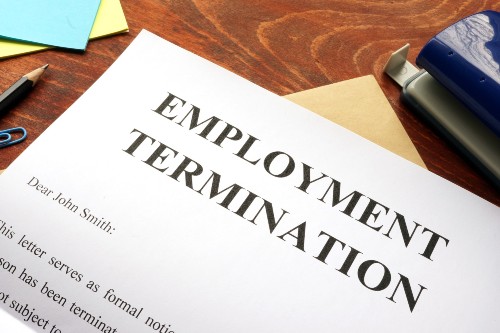
In response to the COVID-19 global pandemic, Governor Gavin Newsom issued shelter-in-place orders requiring various businesses to shutter their doors. Despite these orders, some employers continue to require employees to show up to work.
If the employees refuse, some have been terminated. Governor Newsom’s shelter-in-place orders supersede any demand from an employer to show up to work for a non-essential business.
What is Wrongful Termination?
It’s important to note that because California is an at-will employment state, it is not wrongful for an employer to terminate your employment based on lack of skills, poor work ethic, or even no reason at all. Wrongful termination occurs only when an employee’s employment has been terminated in violation of a contract or based on illegal reasons.
Termination may be wrongful if it is based on:
- Being part of a federally protected class—race, sex, gender identity, disability, national origin, political affiliation, and age;
- Being part of a protected class under California law—race, ancestry, medical condition, genetic information, marital status, military or veteran status, sex, gender identity, sexual orientation, disability, and age;
- Retaliation against the employee for speaking out against harassment or trying to enforce their employment rights; or
- Taking protected time off, such as sick leave.
An experienced wrongful termination attorney can help you understand your rights and determine whether your termination was wrongful.
Wrongful Termination and COVID-19
The emergency shelter-in-place orders declared by Governor Newsom require everyone to stay home, leaving only for essential activities like grocery shopping or picking up prescription medication. All non-essential businesses were temporarily shuttered by the order.
If your employment is a “nonessential business,” you are not required to show up for work. If you refused to show up to work to adhere to the shelter-in-place orders and your employer has terminated your employment as a result, you may have been wrongfully terminated.
Wrongful termination related to COVID-19 may also occur if your employer retaliates against you for contracting coronavirus or taking sick leave by terminating your employment.
The Families First Coronavirus Response Act (FFCRA)
California employee rights related to coronavirus have expanded with the passing of the Families First Coronavirus Response Act (FFCRA) , which affords further protection from wrongful termination.
The FFCRA requires certain employers to provide their employees with paid sick leave or expanded family or medical leave if the employee or a family member has been affected by COVID-19.
Your employer is required to provide the following:
- Up to two weeks of paid sick leave at the employer’s regular rate of pay if the employee is ill;
- Up to two weeks of paid sick leave at two-thirds of the employer’s regular rate of pay if the employee must care for an individual who has been quarantined or ordered to self-isolate due to COVID-19, or to care for a child whose school has been closed or for whom care is unavailable due to COVID-19;
- Up to an additional ten weeks of expanded family and medical leave at two-thirds of the employer’s regular rate of pay where the employee is unable to work to care for a child whose school has been closed or for whom care is unavailable due to COVID-19 or for other defined reasons.
If you are concerned about your employer’s compliance with these new rules, an employment law attorney can help.
Workplace Rights Law Group Can Help with Your Wrongful Termination Case
If you believe you suffered wrongful termination due to coronavirus, navigating the road ahead may be a difficult task. The attorneys at Workplace Rights Law Group have over 100 years of combined experience in employment law.
Our practice focuses on defending the rights of employees in cases involving things like wrongful termination, discrimination, and wage and hour disputes. Contact us today for a free consultation to discuss your rights and options.
